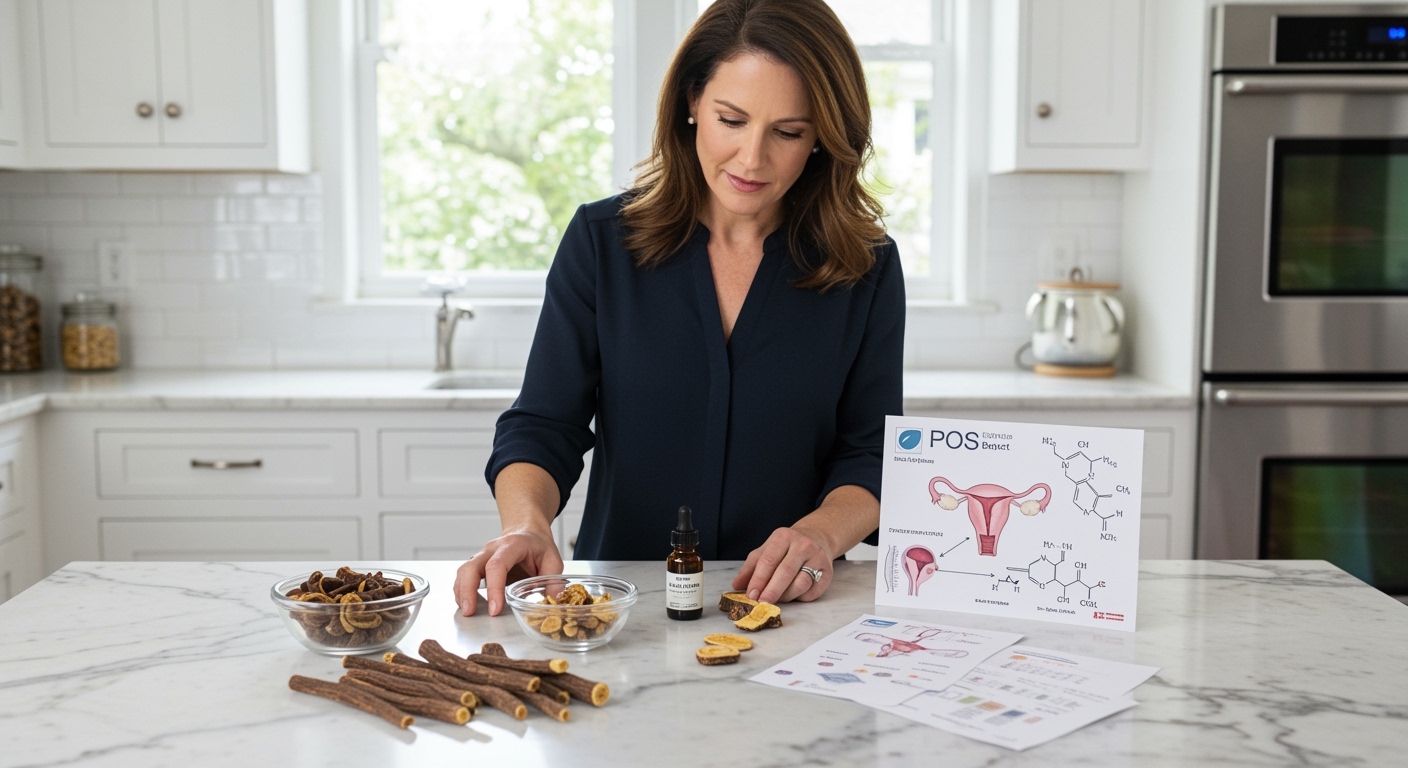✪ Key Takeaway: PCOS women should limit highly processed refined oils but can include minimally processed ones in moderation.
Introduction
You walk down the cooking oil aisle and feel completely overwhelmed by conflicting advice about refined oils and PCOS.
Many women with PCOS wonder if they should completely eliminate all refined oils from their diet to manage their symptoms better.
Hi, I’m Abdur, your nutrition coach and today I’m going to explain exactly which refined oils you should avoid and which ones can actually support your PCOS management goals.
What Makes An Oil Refined?
Oil refining involves multiple chemical and physical processes that remove natural compounds from the original seed or fruit.
The refining process typically includes degumming, neutralization, bleaching, and deodorization using high heat and chemical solvents.
These processes strip away beneficial compounds like antioxidants, vitamins, and natural flavors that were present in the original source.
However, not all refined oils undergo the same level of processing intensity.
Some oils like refined olive oil retain more beneficial compounds compared to heavily processed vegetable oils.
The key difference lies in the processing methods and the original quality of the raw material used.
✪ Fact: Cold-pressed oils undergo minimal processing and retain most of their natural nutrients and antioxidants.
How Do Refined Oils Affect PCOS Symptoms?
Highly refined oils can worsen insulin resistance, which is a core feature of PCOS affecting up to 80% of women with the condition.
These oils often contain high levels of omega-6 fatty acids, which can promote inflammation when consumed in excess.
Chronic inflammation disrupts normal hormone production and can worsen symptoms like irregular periods and acne.
The refining process also creates trans fats and other harmful compounds that interfere with cellular function.
However, the impact depends on the type of refined oil, the amount consumed, and your overall diet quality.
Some minimally refined oils can actually provide stable cooking fats without significantly worsening PCOS symptoms.
✪ Pro Tip: Focus on reducing omega-6 rich oils like soybean and corn oil rather than eliminating all refined oils completely.
Which Refined Oils Should You Avoid?
Heavily processed vegetable oils like soybean, corn, and cottonseed oil should be your primary targets for elimination.
These oils undergo extensive chemical processing and contain extremely high levels of omega-6 fatty acids.
Canola oil, despite being marketed as healthy, often contains hexane residues from the extraction process.
Sunflower and safflower oils also contribute to omega-6 overload, which can worsen inflammatory markers in PCOS women.
These oils are commonly found in processed foods, restaurant meals, and packaged snacks.
Reading ingredient labels becomes crucial since these oils hide in unexpected places like salad dressings and baked goods.
✪ Note: Check ingredient lists for terms like “vegetable oil” which often means a blend of these inflammatory oils.
Which Refined Oils Can You Include?
Light olive oil and refined coconut oil can be included in moderate amounts for high-heat cooking applications.
These oils undergo gentler refining processes that preserve more beneficial compounds compared to heavily processed alternatives.
Refined avocado oil maintains its monounsaturated fat profile and high smoke point, making it suitable for cooking.
Even refined versions of these oils contain fewer inflammatory compounds than typical vegetable oil blends.
The key is using these oils in small quantities and balancing them with unrefined options when possible.
Your total oil intake should still remain moderate since all oils are calorie-dense and can contribute to weight gain if overconsumed.
✪ Pro Tip: Use refined oils only for high-heat cooking and choose unrefined versions for salads and low-heat applications.
What Are Better Oil Alternatives?
Extra virgin olive oil provides antioxidants and anti-inflammatory compounds that can actually benefit PCOS management.
Cold-pressed coconut oil contains medium-chain triglycerides that may support metabolic health and hormone balance.
Unrefined avocado oil offers monounsaturated fats that help reduce inflammation and support insulin sensitivity.
Flaxseed oil provides omega-3 fatty acids that can help balance the omega-6 to omega-3 ratio in your diet.
These unprocessed oils retain their natural vitamin E content and other protective compounds.
You can also reduce overall oil dependence by using cooking methods like steaming, baking, and water sautéing.
✪ Fact: Extra virgin olive oil contains over 30 phenolic compounds that have anti-inflammatory properties beneficial for PCOS.
The Bottom Line
You don’t need to avoid all refined oils completely, but you should definitely eliminate the highly processed vegetable oils that worsen inflammation and insulin resistance.
Smart oil choices support hormone balance while extreme restrictions often lead to dietary stress and social isolation.
Share your thoughts about cooking oils and PCOS in the comments below – I’d love to hear about your experiences and answer any questions you might have.
References
At NutritionCrown, we use quality and credible sources to ensure our content is accurate and trustworthy. Below are the sources referenced in writing this article:
- PubMed: Dietary inflammatory index and metabolic syndrome
- The PCOS Dietitian: Coconut Oil and PCOS
- Oregion: Why Women with PCOS are Turning to Flaxseed Oil
- Maverick Oils: PCOS Friendly Oils





